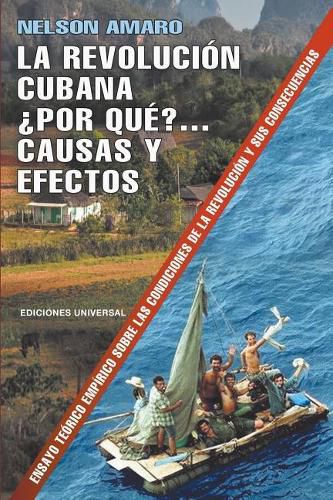Readings Newsletter
Become a Readings Member to make your shopping experience even easier.
Sign in or sign up for free!
You’re not far away from qualifying for FREE standard shipping within Australia
You’ve qualified for FREE standard shipping within Australia
The cart is loading…






This title is printed to order. This book may have been self-published. If so, we cannot guarantee the quality of the content. In the main most books will have gone through the editing process however some may not. We therefore suggest that you be aware of this before ordering this book. If in doubt check either the author or publisher’s details as we are unable to accept any returns unless they are faulty. Please contact us if you have any questions.
Nelson Amaro is a Guatemalan sociologist who was born in Havana, Cuba. Currently, he is the director of the Institute for Sustainable Development at the Galileo University, where he has promoted Doctorate and the Masters degree programs in these areas of study. He received his Ph.D. at the University of Wisconsin, his Master’s degrees from Harvard and M.I.T, and a Bachelor’s degree from Chile’s Pontifical University. In Guatemala, he has served as Vice Minister of Urban and Rural Development (1987-89) and Dean of the Faculty of Social Sciences at the Universidad del Valle (1995-2000) among other positions. Here he also founded a Master’s degree program in Development that has just turned 20 years old. He has been an official for the United Nations in New York, San Salvador, Rome and Mozambique, as well as a Consultant for different international organizations in places as diverse as Bangladesh, South Korea, Equatorial Guinea, Jordan, Somalia, Uganda and almost all Latin America.
The contents of this publication cover different stages of the author’s life. The first chapters discuss the reasons that made the Cuban revolution prevail. The author experienced this situation at a very young age and participated in movements that worked to end Fulgencio Batista’s de facto presidency. The author explains the social phenomenon that led to the Cuban revolution, including the main protagonists in this process, who ended up embracing the Marxist-Leninist theory. The most notable example of this approach is Commander Dr. Ernesto Che Guevara himself, when he expresses the theory of the Revolutionary Focus that is explained in this book. Guevara’s death is proof that the theory was wrong and is discussed in detail by the author in his Graduation Thesis, approved for the Pontifical University of Santiago de Chile at the beginning of 1967. The following chapters are the consequences.
$9.00 standard shipping within Australia
FREE standard shipping within Australia for orders over $100.00
Express & International shipping calculated at checkout
This title is printed to order. This book may have been self-published. If so, we cannot guarantee the quality of the content. In the main most books will have gone through the editing process however some may not. We therefore suggest that you be aware of this before ordering this book. If in doubt check either the author or publisher’s details as we are unable to accept any returns unless they are faulty. Please contact us if you have any questions.
Nelson Amaro is a Guatemalan sociologist who was born in Havana, Cuba. Currently, he is the director of the Institute for Sustainable Development at the Galileo University, where he has promoted Doctorate and the Masters degree programs in these areas of study. He received his Ph.D. at the University of Wisconsin, his Master’s degrees from Harvard and M.I.T, and a Bachelor’s degree from Chile’s Pontifical University. In Guatemala, he has served as Vice Minister of Urban and Rural Development (1987-89) and Dean of the Faculty of Social Sciences at the Universidad del Valle (1995-2000) among other positions. Here he also founded a Master’s degree program in Development that has just turned 20 years old. He has been an official for the United Nations in New York, San Salvador, Rome and Mozambique, as well as a Consultant for different international organizations in places as diverse as Bangladesh, South Korea, Equatorial Guinea, Jordan, Somalia, Uganda and almost all Latin America.
The contents of this publication cover different stages of the author’s life. The first chapters discuss the reasons that made the Cuban revolution prevail. The author experienced this situation at a very young age and participated in movements that worked to end Fulgencio Batista’s de facto presidency. The author explains the social phenomenon that led to the Cuban revolution, including the main protagonists in this process, who ended up embracing the Marxist-Leninist theory. The most notable example of this approach is Commander Dr. Ernesto Che Guevara himself, when he expresses the theory of the Revolutionary Focus that is explained in this book. Guevara’s death is proof that the theory was wrong and is discussed in detail by the author in his Graduation Thesis, approved for the Pontifical University of Santiago de Chile at the beginning of 1967. The following chapters are the consequences.